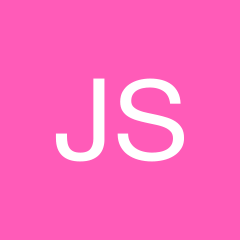如何使 json $ref本地文件?
我正在我的节点.js项目中使用 AJV 包。
我正在尝试根据几个架构文件验证一些数据。这两个架构文件位于同一目录中:
/dir
|
parent_schema.json
|
sub_schema.json
/data
|
data.json
我试图得到一个超级简单的例子,但我遇到了麻烦。 看来:$refparent_schema.json
{
"properties": {
"foo": { "type": "string" },
"bar": { "$ref": "sub_schema.json" }
}
}
看起来像这样:sub_schema.json
{
"properties": {
"sub1": { "type": "string" },
}
}
为了完整起见,我试图验证我的:如下所示:data.json
{
"foo": "whatever",
"bar": {
"sub1": "sometext"
}
}
我遇到的问题是我的道路。我从 AJV 收到此错误:$ref
MissingRefError {
message: "can't resolve reference subschema1.json from id #"
missingRef: "subschema1.json"
missingSchema: "subschema1.json"
}
有人看到我的道路出了什么问题吗?我知道您还应该使用 来选择要匹配的特定属性,但我希望使用整个架构。#
 手掌心
手掌心浏览 143回答 1
1回答
-

缥缈止盈
这是一个常见的误解,以某种方式“加载”文件。$ref看看 ajv.js.org 是怎么说的:$ref使用架构$id作为基本 URI 作为 URI 引用进行解析(请参阅示例)。和:您不必在用作架构$id的 URI 上托管架构文件。这些 URI 仅用于标识架构,根据 JSON 架构规范,验证程序不应期望能够从这些 URI 下载架构。Ajv 不会尝试从以下位置加载此架构:例如:stack://over.flow/string{ "$id": "stack://over.flow/string", "type": "string"}如果要在另一个架构中引用该架构,它们都需要具有相同的基本URI,例如,stack://over.flow/{ "$id": "stack://over.flow/object", "type": "object", "properties": { "a": { "$ref": "string#" } }}这里说“在 stack://over.flow/string 导入架构”,所以你最终得到:{ "$ref": "string#" }{ "$id": "stack://over.flow/object", "type": "object", "properties": { "a": { "$id": "stack://over.flow/string", "type": "string" } }}这允许您组合小架构:const ajv = new Ajv;ajv.addSchema({ "$id": "stack://over.flow/string", "type": "string"});ajv.addSchema({ "$id": "stack://over.flow/number", "type": "number"});const is_string = ajv.getSchema("stack://over.flow/string");const is_number = ajv.getSchema("stack://over.flow/number");console.log(is_string('aaa'), is_string(42));console.log(is_number('aaa'), is_number(42));const is_ab = ajv.compile({ "$id": "stack://over.flow/object", "type": "object", "properties": { "a": { "$ref": "string#" }, "b": { "$ref": "number#" } }});console.log(is_ab({a: "aaa", b: 42}));console.log(is_ab({a: 42, b: "aaa"}));<script src="https://cdnjs.cloudflare.com/ajax/libs/ajv/6.12.2/ajv.min.js"></script>(请注意,在您的示例中,两个架构都不正确。两者都缺少 {“type”: “对象”}。要回答您的问题:const ajv = new Ajv;ajv.addSchema({ "$id": "stack://over.flow/parent.schema", "type": "object", "properties": { "foo": { "type": "string" }, "bar": { "$ref": "child.schema#" } }});ajv.addSchema({ "$id": "stack://over.flow/child.schema", "type": "object", "properties": { "sub1": { "type": "string" }, }});const is_parent = ajv.getSchema("stack://over.flow/parent.schema");const is_child = ajv.getSchema("stack://over.flow/child.schema");console.log(is_parent({ "foo": "whatever", "bar": { "sub1": "sometext" }}));<script src="https://cdnjs.cloudflare.com/ajax/libs/ajv/6.12.2/ajv.min.js"></script>
 随时随地看视频慕课网APP
随时随地看视频慕课网APP
相关分类

 JavaScript
JavaScript